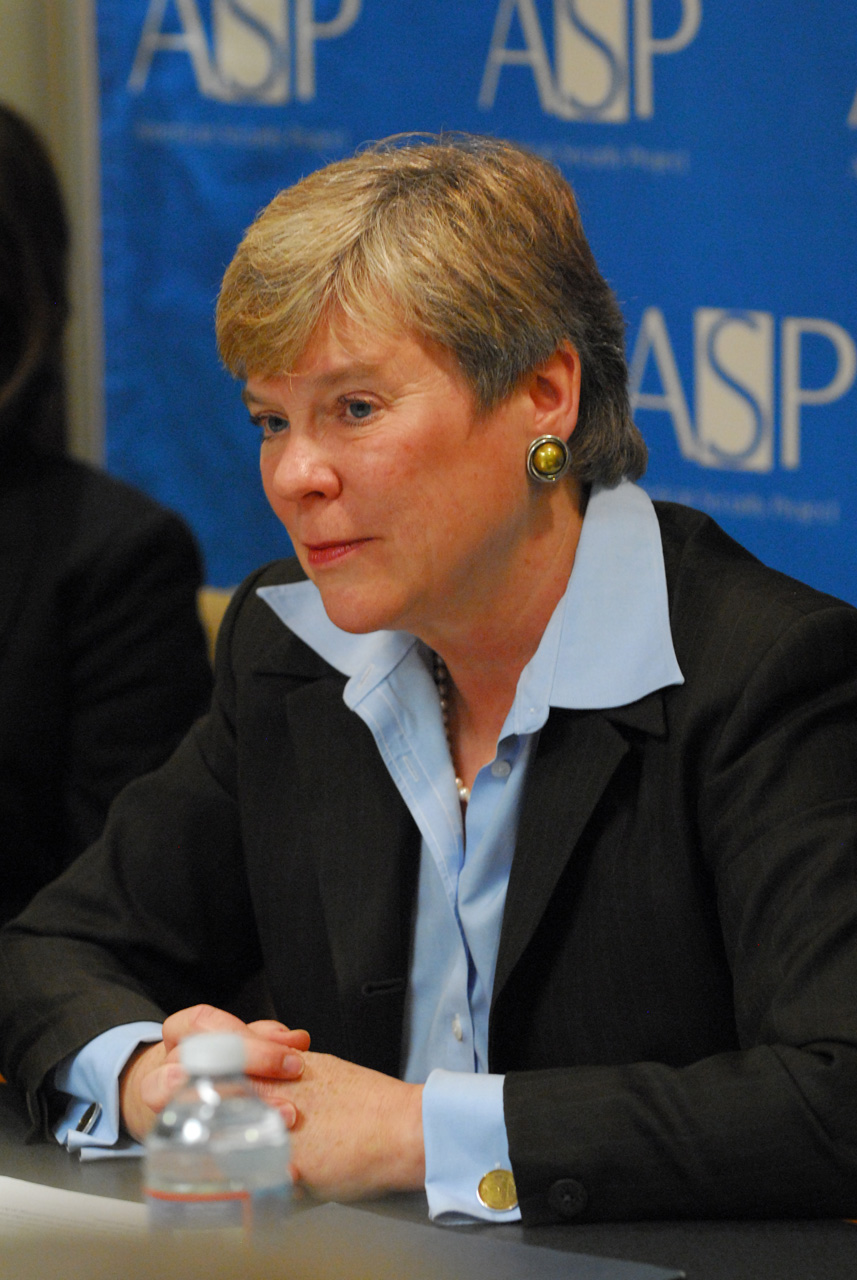
Gottemoeller: New START – Stability and National Security Increased
Washington D.C., 31 January 2012- Today, Assistant Secretary of State Rose Gottemoeller spoke at an event sponsored by the American Security Project entitled, “New START: A Year Later- How New START Improved our National Security and the Next Steps with Russia.” 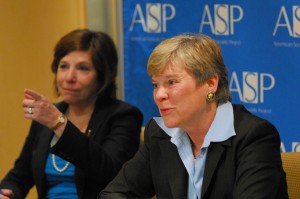
Ms. Gottemoeller discussed how the treaty, which entered into force nearly a year ago on February 5th 2011, has improved strategic stability with the Russian Federation, reduced both country’s nuclear arsenals, and improved and increased the amount of information available to the United States.
According to Ms. Gottemoeller, “the current working environment [between the United States and Russia] is pragmatic and businesslike.”
The Treaty has improved global security by reducing the number of deployed strategic warheads in the United States and Russian arsenals. It limits both countries to 1,550 deployed strategic warheads, 30% below the upper limit of the SORT Treaty; 700 deployed ICBMs, SLBMs, and heavy bombers; and 800 deployed and non-deployed ICBM launchers, SLBM launchers, and heavy bombers.
Ms. Gottemoeller stated that the fluctuation in the number of deployed weapons in the biannual reports is due to various issues, most notably the occasional repair and refitting of strategic forces which affect the number of deployed warheads. However, when fully implemented, “Under the New START Treaty, there will be the lowest number of deployed warheads since the 1950’s.”
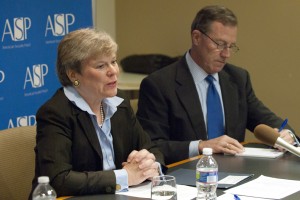 Ms. Gottemoeller discussed New START’s additional benefit to bilateral security by gaining the ability to constantly monitor Russian strategic nuclear weapons.
Ms. Gottemoeller discussed New START’s additional benefit to bilateral security by gaining the ability to constantly monitor Russian strategic nuclear weapons.
In one treaty-year, from February 5th 2011 to February 5th 2012, the United States and Russia have conducted 18 on-site inspections, the maximum number allowed under the Treaty.
The United States and Russia have exchanged roughly 1,800 notifications pertaining to weapons dispositions, deployments, and repairs since the implementation of the Treaty, a 28% increase from the START Treaty over a similar amount of time. Because of the unprecedented compliance and verification measures Ms. Gottemoeller felt that, “we are essentially monitoring a living document providing a look into each others’ nuclear forces.”
New START has strengthened strategic stability between the United States and Russia by allowing each country to maintain a predictable nuclear arsenal. 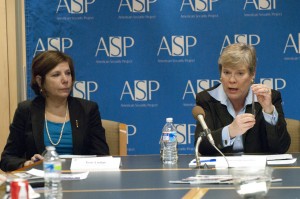
This enhances U.S. insight into Russia’s strategic forces and increases the amount of information accessible to the United States.
The United States has received reentry data from Russian reentry vehicles during Russian test flights and inspections have contributed to U.S. knowledge about Russian strategic forces. Unlike the START treaty which assumed the maximum number of warheads were on each deployed launch vehicle, the United States can now actually count the number of warheads on missiles, a “worthy innovation” that did not exist before.
Ms. Gottemoeller emphasized that ratification of New START has not restricted the ability of the United States to design, test, and deploy missile defense systems. She also discussed how Russia is unsure about U.S. missile defense system called the European Phased Adaptive Approach and would like to engage the United States in regards to this system.
On the subject of further arms reduction negotiations Ms. Gottemoeller stated, “Both the United States and Russia are committed to a step-by-step approach to the reduction of nuclear weapons systems.”
The next treaty between the two countries will involve a further reduction in non-deployed strategic and tactical nuclear weapons. 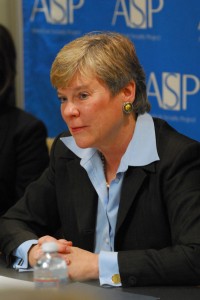
The United States is currently in “homework mode” for the next treaty but both countries are willing to hold discussions. However, due to the current election cycles in both Russia and the United States, the upcoming NATO Deterrence and Defense Posture Review, and upcoming United States Defense Assessment will have to be resolved before any further talks can go forward.
Ms. Gottemoeller closed by saying the cooperation between the United States and Russia has been very constructive and that the New START Treaty has been a resounding success.






[…] Gottemoeller: New START – Stability and National Security Increased […]